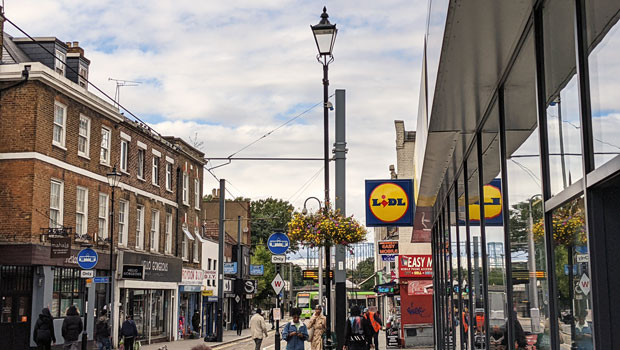UK inflation hits 30-year high of 5.5% in January

UK inflation hit 5.5% in January as consumer prices hit their highest level since 1992, the Office for National Statistics said on Wednesday.
The rise compared with December's 5.4% and forecasts of an unchanged figure and is another sign of the increasing squeeze on household budgets. The ONS said there had been fewer January sales as retailers looked to pass on higher costs.
“Clothing and footwear pushed inflation up this month and although there were still the traditional price drops, it was the smallest January fall since 1990, with fewer sales than last year,” said ONS chief economist Grant Fitzner.
He added that the rising cost of some household goods and increases in rents also pushed up inflation. However, these were partially offset by lower fuel prices after record highs at the end of last year.
Electricity prices rose by 19.2% year on year, with gas prices surging 28.3% due to energy price cap increases last April and October 2021, and rising energy prices in Northern Ireland, which is not subject to regulatory capping measures.
The Bank of England earlier this month said it expected inflation would peak at around 7.25% in April, when a 54% rise in regulated household energy bills take effect.
It has already hiked interest rates twice since December to 0.5% from 0.1%. Economists are tipping another rise to 0.75% or 1% on March 17 after the central bank’s next meeting.
Samuel Tombs at Pantheon Macroeconomics said CPI inflation forecast a jump in CPI to about 6% in February, as retailers continue to pass on higher producer prices to consumers, noting that food producer output price inflation increased to 6% in January from 5.2% in December, while core producer output price inflation increased to 9.3%, from 8.6%.
"Then in April, the headline rate likely will shoot up to between 7.5% and 8.0% in April. The 54% rise in Ofgem’s default tariff price cap implies that the combined contribution of electricity and natural gas prices to the headline rate will soar to 2.4 percentage points in April, from 0.7pp at present," he said.
"Thereafter, however, CPI inflation should fall back steadily, potentially reaching 5% by January 2023 and then slightly undershooting the 2% target from April 2023."